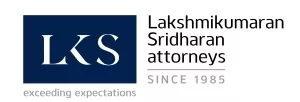- in United States
- within Technology and Tax topic(s)
Introduction
While BIS Certification Scheme is essentially voluntary in nature,
the Central Government notifies a number of products that must
ensure mandatory compliance. Such powers are conferred to various
line ministries under the Central Government under Section 16 of
the BIS Act, 2016. As per the said provision, such goods or
articles are determined based on various factors such as public
interest, protection of human, animal or plant health, safety of
environment, prevention of unfair trade practices, and national
security.
At present, majority of the daily-use and industrial goods are
notified under Scheme-I of the BIS (Conformity Assessment)
Regulations, 2018. An overview of all the conformity assessment
schemes of BIS was discussed in the previous newsletter, as
provided here.
In this article, we are going to throw light on the essential
elements of Scheme-I, also known as the Product Certification
Scheme of BIS.
Overview of Scheme-I: Product Certification Scheme
The certification under this scheme is signified by the ISI mark,
an emblem of quality and aconformity in India. It is applicable to
both domestic as well as foreign manufacturers.
At present, the Central Government has issued 178 QCOs under
Scheme-I, covering more than 679 products such as copper and copper
products, electrical appliances, textile products, chemicals,
construction materials, etc.
Product Certification Process
Under this scheme, BIS grants a licence upon a successful
inspection of the manufacturing infrastructure, production process,
quality control, and testing capabilities of the manufacturer. This
is accomplished through a visit and thorough assessment of their
manufacturing premises.
Further, conformity of the product to the relevant standard(s) is
established through third-party laboratory testing or testing in
the manufacturing premises or a combination of both.
Submission of application: Any manufacturer who wishes to apply for
BIS certification must file an application in Form-V, specified in
Scheme-I of the BIS (Conformity Assessment) Regulations, 2018. The
applicant shall be required to submit the relevant documents as per
the Form-V, along with a self-evaluation cum verification
report.
Procedures for grant of licence
The Bureau shall follow any one of the following procedures or any
combination thereof, for grant of licence, namely:
The processes mentioned above have been laid out under the BIS
(Conformity Assessment) Regulations, 2018. It further lays down the
procedures for attestation, surveillance, application fee, marking
fee, labelling and marking requirements, conditions of licence,
validity of licence, renewal of licence, suspension and cancelation
of licence, etc.
Mandatory Forms when applying for certification under Scheme
– I of BIS
Form – I: Declaration Regarding Manufacturing Machinery
Form – II: Declaration Regarding Test Equipment
Form – III: Proposed Levels of Controls for Inspection and
Testing
Form – IV: Test Report
Form – V: Application for Licence to use the Standard
Mark
Form – VI: Form for Nomination of AIR by Manufacturer
Form – VII: Discrepancy-cum-Advisory Report
Form – VIII: Licence for the use of Standard Mark
Form – IX: Agreement for the grant of Bureau of Indian
Standards Licence (for use by the Foreign Manufacturer)
Form – X: Indemnity Bond
Form – XI: Performance Bank Guarantee (PBG) to be deposited
by the foreign applicant of USD 10,000
Form – XII: Application for Renewal of Licence
Form – XIII: Attachment to Licence
Form – XIV: Application for change in scope of Licence.
Form – XV: Attachment to Licence
BIS Certification: Challenges faced v. Key benefits
LKS Comments
Scheme-I, or the Product Certification Scheme of BIS is a
cornerstone of India's quality assurance framework. While its
procedural aspects demand meticulous compliance, the benefits
certainly outweigh. By ensuring adherence to prescribed standards
and maintaining robust manufacturing practices, businesses can
leverage the BIS certification to thrive in a competitive and
quality-conscious marketplace. It is highly advisable for all the
businesses to regularly monitor BIS notifications and stay updated
on the latest developments.
The content of this article is intended to provide a general guide to the subject matter. Specialist advice should be sought about your specific circumstances.


